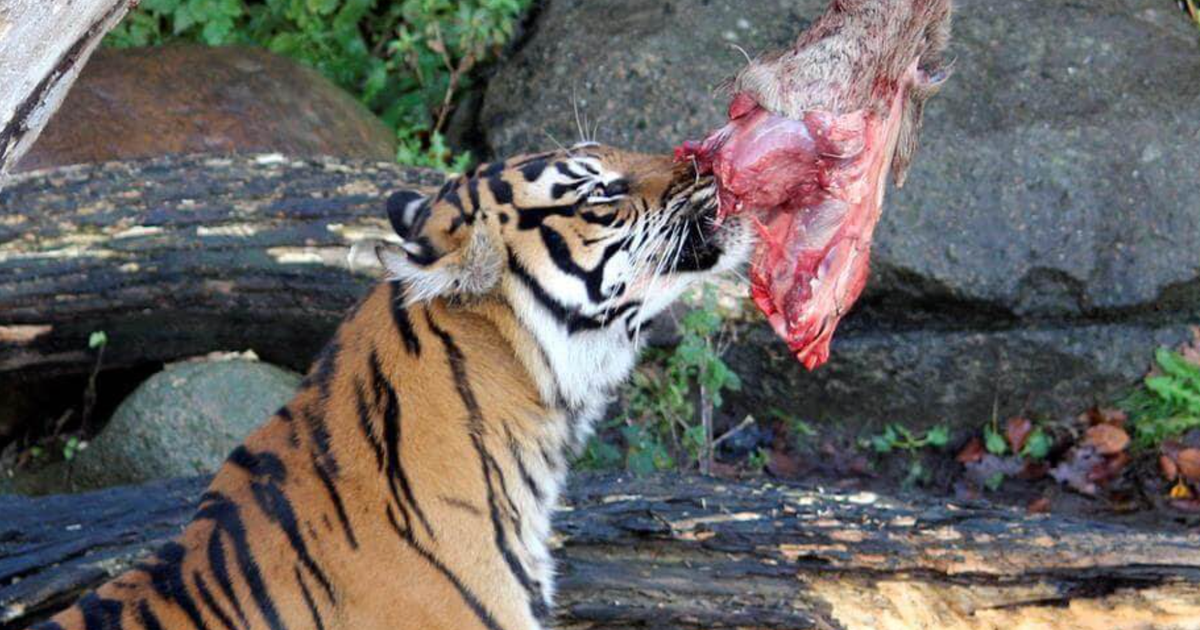Aalborg Zoo’s Unique Approach to Animal Welfare: A Call for Donations
In a strikingly sympathetic collaboration between animals and humans, Aalborg Zoo in Denmark has initiated a campaign asking the public to consider donating small pets and even horses to support the dietary needs of its carnivorous residents. This unconventional approach to animal care is rooted in the zoo’s commitment to responsibly mimicking the natural food chain, providing essential nutrition and promoting the well-being of its predatory animals.
The Importance of Whole Prey
Aalborg Zoo emphasizes the significance of feeding its predators with whole prey, which mimics what they would hunt in their natural habitats. This practice is not only a matter of dietary necessity but also contributes to better psychological and physical health for the animals. Predators like lions, tigers, and wolves thrive when they can engage in behaviors that reflect their wild origins, which includes consuming whole animals such as chickens, rabbits, and guinea pigs. This method enhances their instincts and contributes positively to their overall wellness.
Donation Process and Guidelines
Interested donors can contribute to this noble cause by bringing their healthy, unwanted small pets—including guinea pigs, rabbits, and chickens—during designated hours. The zoo requests that individuals limit their donations to four animals at a time. By doing so, Aalborg Zoo ensures that it can manage its resources effectively while providing for the needs of its animals.
For those with larger animals, such as horses, the zoo has specific guidelines. Horses must not have been treated for illness for at least a month and should meet size requirements to ensure safe transport. Donors can rest assured that any animals provided for feeding are humanely euthanized by trained zookeepers and veterinarians, adhering to ethical standards that prioritize animal welfare.
The Tax Benefits of Donations
Donating animals to Aalborg Zoo not only aids in animal nutrition but also provides potential tax benefits for the donors. Since the donated animals hold value, the zoo encourages participants to seek tax deductions based on the current value of the animal, assisting both parties in a way that enhances community support for animal care and conservation.
Understanding Seasonal Needs
Aalborg Zoo notes that their dietary requirements may fluctuate throughout the year. As such, donations are welcome, but there may be times when they cannot immediately accept all animals due to capacity or specific dietary needs. This awareness of their changing requirements underlines the zoo’s commitment to thoughtful and responsive animal care.
Community Engagement
In making this request, Aalborg Zoo is engaging its community in a conversation about animal welfare and conservation practices. By appealing to pet owners who may have unwanted animals, the zoo not only alleviates the burden of pet overpopulation but also fosters a sense of shared responsibility among local residents. This collaboration embodies the principle that caring for one another—both humans and animals—can lead to a healthier ecosystem.
Final Thoughts
Aalborg Zoo’s initiative is more than just a feeding program; it represents a holistic approach to animal care that balances ethical standards with practical needs. In a world where the bonds between humans and animals are continuously evolving, this unique program lays the groundwork for future conversations about animal welfare, community involvement, and conservation efforts. It serves as a reminder of our shared responsibility toward creating a more harmonious environment for all living beings.



